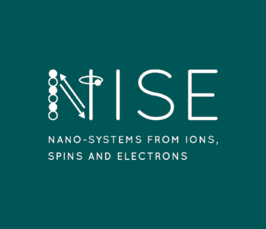Proximity induced superconducting collective modes
- Datum: 20.10.2021
- Uhrzeit: 14:00
- Vortragende(r): Dr. Johnathan Curtis
- Narang Lab, Materials Theory, Harvard University
- Ort: Max-Planck-Institut für Mikrostrukturphysik, Weinberg 2, 06120 Halle (Saale)
- Raum: Lecture Hall, B.1.11

The proximity effect has been widely studied in superconducting systems as a means of inducing novel superconducting ground states, and studying interesting quasiparticle dynamics. In this talk we will consider a heterostructure comprised of a conventional s-wave superconducting substrate and an unconventional superconducting monolayer, forming an S-S system. In the case where the unconventional superconducting order is in a channel which is orthogonal to the substrate, the mean-field transition of the monolayer superconductivity is depressed by the substrate, which quenches the density of states at the Fermi level. Nevertheless, the attractive interaction in the monolayer remains intact, and by going beyond the standard quasiparticle picture, we show that this can give rise to distinct collective modes which are effectively remnants of the intrinsic monolayer order. This collective mode is essentially a Bardasis-Schrieffer mode, and corresponds to a bound state of proximitized electrons. Upon lowering the sample temperature this mode progressively sharpens as it emerges from the proximitized mini-gap, and eventually softens to zero-frequency at the heterostructure transition temperature. We hypothesize that below this transition temperature, the system spontaneously breaks time-reversal symmetry and enters a mixed superconducting state where the monolayer order parameter is fixed out-of-phase with the substrate.